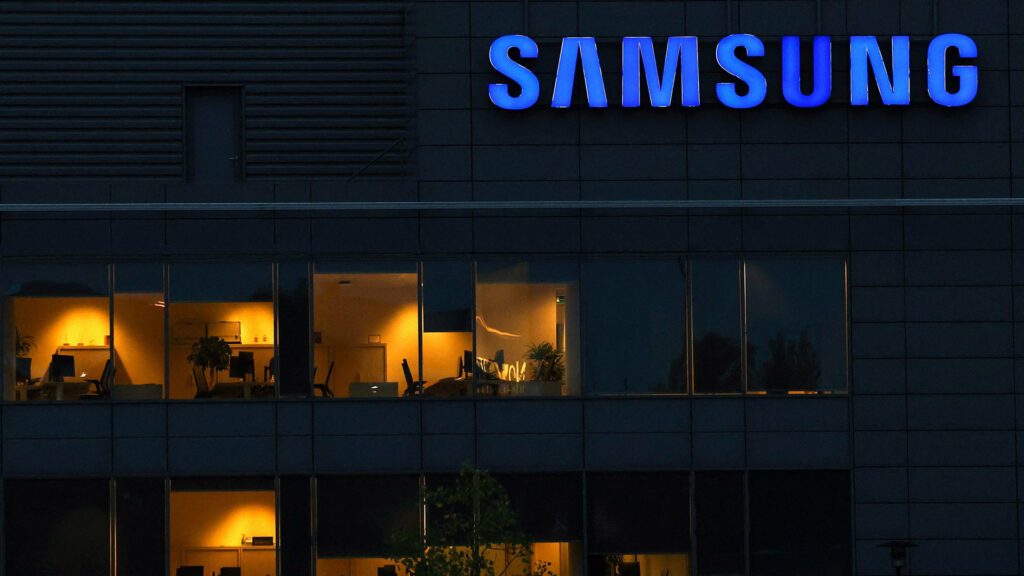
Newsletter Subscribe
Enter your email address below and subscribe to our newsletter

Enter your email address below and subscribe to our newsletter

Samsung acquires Oxford Semantic Technologies, boosting AI capabilities for enhanced personalization and on-device intelligence.
In a strategic move to bolster its artificial intelligence (AI) capabilities, Samsung Electronics has announced its agreement to acquire Oxford Semantic Technologies, a British startup specializing in knowledge graph technology.
This acquisition marks a significant step in Samsung’s ongoing efforts to enhance its AI offerings and maintain a competitive edge in the rapidly evolving tech landscape.
The acquisition of Oxford Semantic Technologies by Samsung is emblematic of a broader trend in the tech industry: the AI arms race.
As artificial intelligence becomes increasingly central to product offerings and user experiences, major tech companies are vying for dominance in this space. This acquisition highlights several key industry dynamics:
Knowledge graph technology represents a sophisticated approach to storing and processing information.
By organizing data as an interconnected web of related ideas, it more closely mirrors human reasoning processes. This technology has several key advantages:
The acquisition of Oxford Semantic Technologies signals Samsung’s intent to:
The acquisition has garnered enthusiastic responses from leadership at both Samsung and Oxford Semantic Technologies, offering insight into the strategic vision behind this move.
Peter Crocker, CEO of Oxford Semantic Technologies, expressed excitement about the collaboration:
“We are delighted to be working with Samsung. By integrating Samsung’s expertise in user experience and data with our advanced knowledge graph and reasoning technology, we will provide Samsung’s customers with even more sophisticated personalization. In addition, developing RDFox with Samsung, and being part of the larger group, will provide all of our clients with an even better product, service and support.”
Crocker’s statement highlights the synergies between the two companies, emphasizing:
Paul Kyungwhoon Cheun, Head of Samsung Research and CTO of Samsung Electronics, provided insight into Samsung’s strategic thinking:
“As global consumers realize their growing need for more personalized AI experiences, the acquisition of Oxford Semantic Technologies will further boost Samsung’s strong capabilities in knowledge engineering. This acquisition is another important step forward as we strive to deliver tailor-made AI experiences built upon our hallmark technological innovation.”
Cheun’s statement underscores several key points:
These executive statements provide valuable context for understanding the strategic importance of this acquisition. They suggest that Samsung is not merely acquiring technology, but is actively working to integrate advanced AI capabilities into its core product offerings, with a specific focus on enhancing personalization and user experience.
The immediate focus appears to be on enhancing AI capabilities in Samsung’s smartphone lineup. Potential applications could include:
Beyond smartphones, the technology could be integrated across Samsung’s broad product ecosystem, including:
The emphasis on on-device AI aligns with growing consumer concerns about data privacy. By processing more data locally, Samsung could offer enhanced AI features while maintaining strong privacy protections.
This acquisition represents just one piece of Samsung’s broader AI strategy. As the company continues to invest in AI capabilities, we can expect to see:
Samsung’s acquisition of Oxford Semantic Technologies underscores the company’s commitment to advancing its AI capabilities. As the tech industry continues to be shaped by advancements in artificial intelligence, this move positions Samsung to compete more effectively in this crucial arena.
For business leaders and investors, this acquisition signals the ongoing importance of AI in driving innovation and competitive advantage in the tech sector.